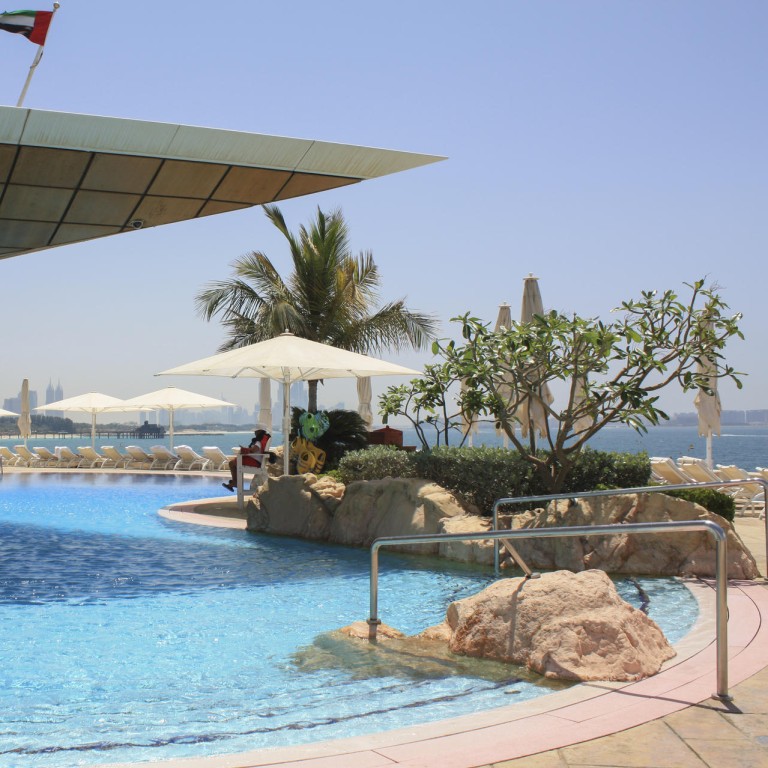
Fit for a king: Dubai's 'seven-star' Burj Al Arab hotel
It's the building whose construction defined Dubai, writes Jenni Marsh. To experience its opulence is also to experience a piece of history
By reputation, only. The Jumeirah Group, which owns the property, claims to have never used the term "seven stars"; it was coined by a British journalist at the hotel's opening, and conveniently stuck. Here's what "seven stars" will get you: 15,000 staff, including a 70-strong lobby team of hostesses who must be five feet, eight inches tall, and doormen, who are at least six foot one and, not accidentally, handsome. The hotel has 200 chefs and seven restaurants (including the exclusive Skyview Bar), and features 28,000 light fittings. Its curved driveway is a catwalk for Lamborghinis and Ferraris. Shaped like a giant sail to reflect the desert city's seafaring and pearl-diving past (the latter industry was decimated after the Japanese invented cultured pearls in 1893), the Burj is built on a man-made island, which took three years to reclaim - the hotel took less time to build - and juts out into the Persian Gulf. Unashamedly chasing the VVIPs, when the Burj (meaning "tower" in Arabic) is flying a country's flag, it normally means the royals or rulers of that nation are about to check in. Probably via the helipad.

Puh-lease, there are no "rooms"! Just 202 deluxe suites over 25 two-storey levels, the top one being dedicated to the two 8,000 sq ft royal suites, which cost US$15,517 and up each a night. In these, you'll find leopard-skin floors, scattered red rose petals imported from Kenya and Colombia and dining chairs with gold-plated legs (there's 2,000 square metres of 24-carat gold leaf throughout the hotel). Each royal suite boasts a private cinema and a rotating bed. Where's the need for a rotating bed? You're missing the point. Contrary to a recent report in a certain British newspaper, however, there isn't a gold-plated iPad in every suite (it's a white iMac), but you can buy one from the gift shop, for US$10,000. Or get your private butler - one is assigned to every suite - to pop down and buy it on your behalf.
Sadly, no longer do we all go to dinner in a yellow (well, gold) submarine, as used to be the case at Al Mahara ("the oyster shell"). Instead, a gold lift now takes diners into the under-the-sea-themed restaurant (guess what type of cuisine is served?). Tables ring a 300,000-litre aquarium (above right), home to sharks, green eels and sting rays, and manned by eight staff, including two marine biologists, who also run the hotel's turtle hospital.
Probably, but so mesmerising was the aquatic display that I don't quite remember …
If you know the movers and "sheikhers" of the Middle East, yes. In reality, you're going to rub Prada with flush Russians and travellers from China - during the Lunar New Year, that's where 80 per cent of the hotel's guests are from - taking selfies before the lobby's Ellipse Fountain, a 20,000-litre water fantasia.

An eye-watering US$3,250 (plus a US$5 tourism fee per night) for a deluxe one-bedroom suite. But this hotel is basically to Dubai what the Eiffel Tower is to Paris, and the Sydney Opera House is to the Australian city; it didn't just change Dubai when it was built, it defined it. Turning heads globally, the Burj personifies the oil-poor emirate's opulently capitalist road map. Staying here is to experience a slice of history. A very comfortable slice, indeed.
